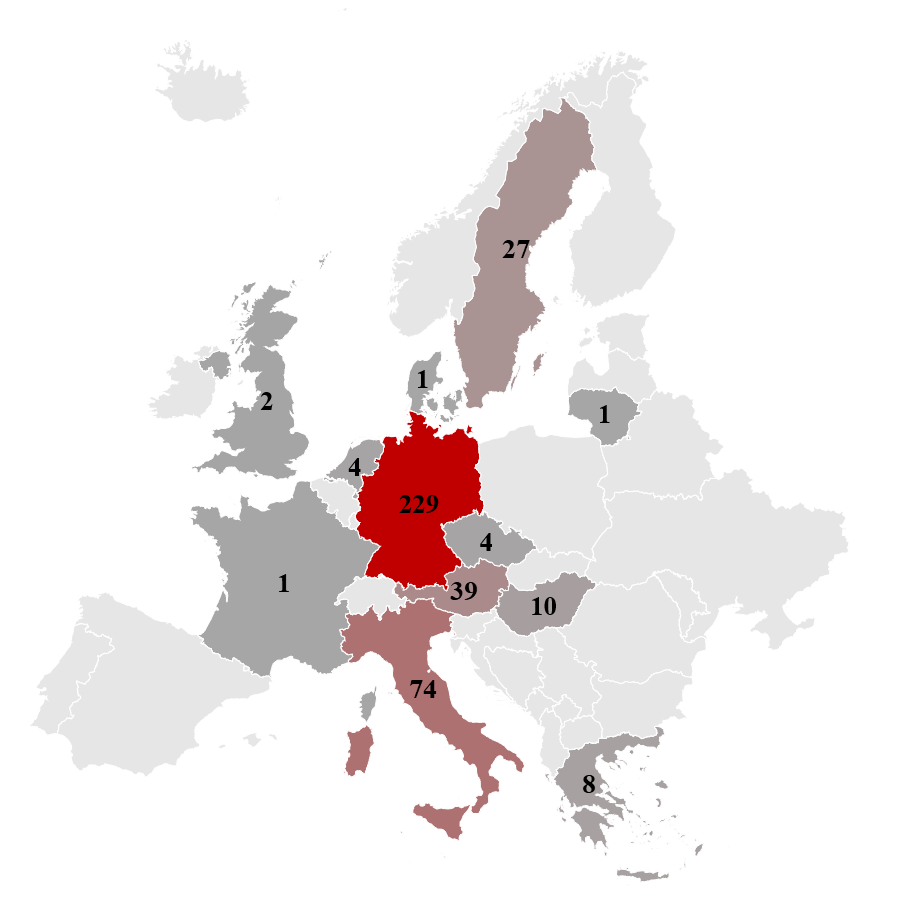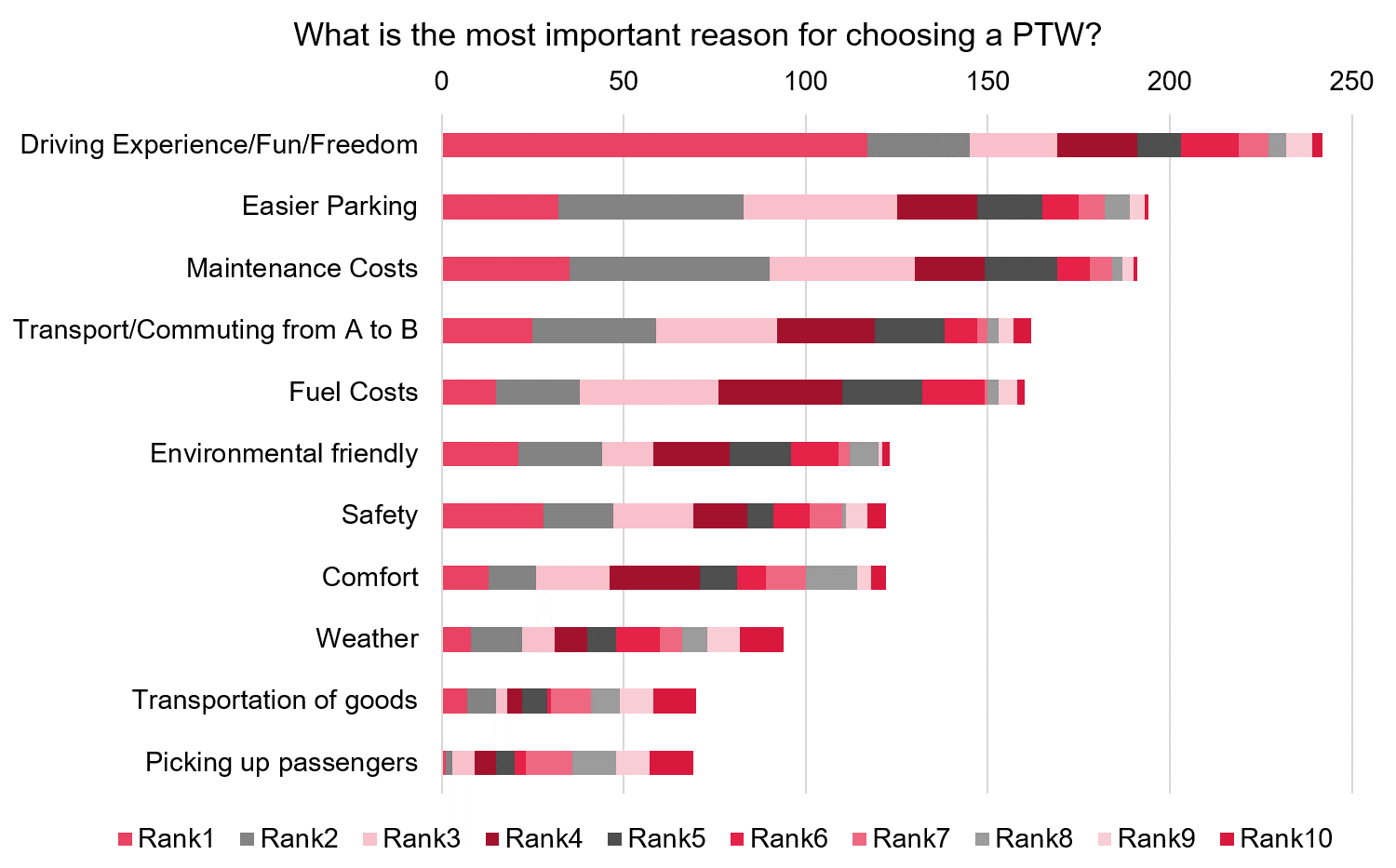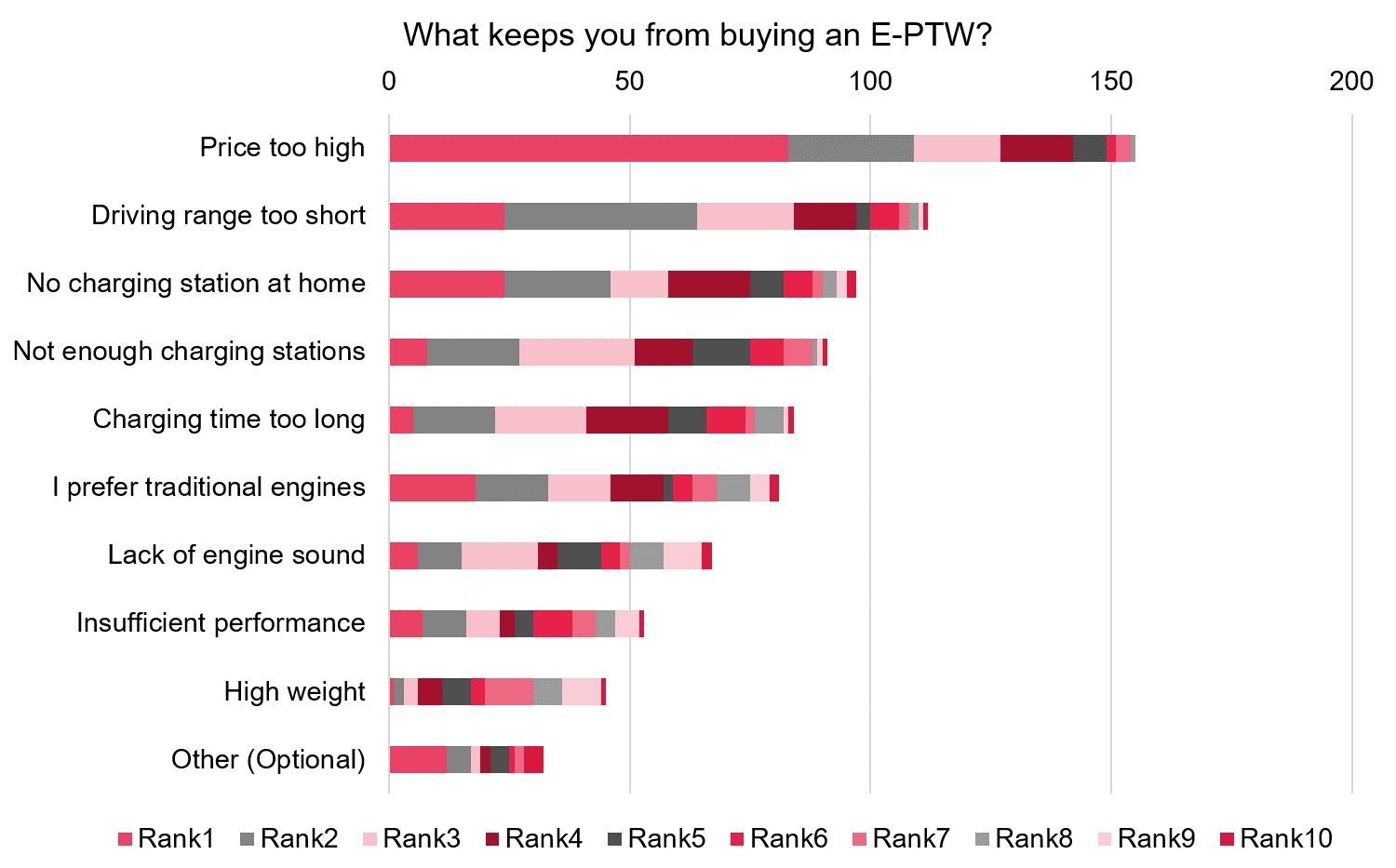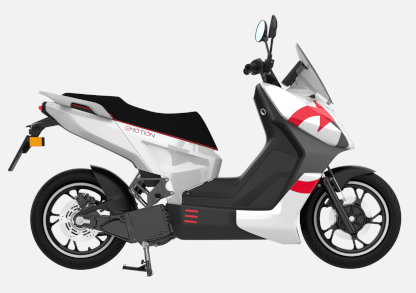Personal transport is of high importance in our society and the 2020/2021 pandemic situation even reinforced this situation. At the same time, transport contributes to local emissions, which need to be reduced in the face of climate change. Changing from vehicles with internal combustion engine to light electric vehicles could be one promising approach. Therefore, we need to understand mobility patterns and attitudes towards E-mobility to create sustainable transport solutions that will be broadly accepted.
An online survey with N = 432 participants across Europe was conducted. Because some participants quit the user survey inbetween, the nationality of only 400 participants is known and shown in the following figure.

Generally, cars are still the main vehicle for personal transport. PTWs are used for commuting as well as leisure activity. Participants were asked “What is the most important reason for choosing a PTW?” by ranking following categories from 1 (most important) to 10 (least important). Driving experience, easier parking and lower maintenance compared to cars are the main reasons to choose a PTW.

Furthermore, participants were asked “What keeps you from buying an E-PTW?” by also ranking following categories from 1 (most obstructive) to 10 (least obstructive). E-PTWs are primarily avoided due to high costs, range anxiety and expected problems with the charging infrastructure.

To support sustainable mobility these obstacles need to be overcome. Interestingly, nearly no differences between younger and elderly participants were observed. To tackle the fears of riding an E-PTW, one aspect is definitely the provision of better charging infrastructure or electric vehicles with increased range. Hence, given typical trip lengths and purposes it might seem equally important to tackle prejudices and increase the knowledge about e-mobility with all its potential benefits in the population. All of which are aims within EMotion.

